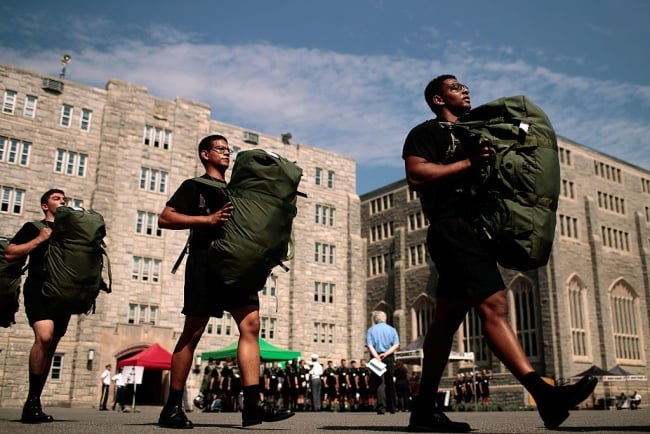You have /5 articles left.
Sign up for a free account or log in.

First-year cadets at West Point in 2016. The Supreme Court made an exception for military academies in its June 29, 2023, ruling striking down affirmative action.
Drew Angerer/Getty Images
The U.S. Supreme Court declined to intervene in the latest affirmative action legal battle, this time centered on the United States Military Academy’s continued use of race-conscious admissions.
The case, Students for Fair Admissions v. U.S. Military Academy at West Point, is currently being heard by a federal appellate court. The plaintiff, SFFA—the same organization that won landmark victories last year against Harvard University and the University of North Carolina at Chapel Hill—appealed for an emergency injunction from the court to stop West Point from considering race in admissions while the lower court’s proceedings continue.
In an unsigned note with no apparent dissents, the justices of the high court said they were passing on the case because its “record before this Court is underdeveloped, and this order should not be construed as expressing any view on the merits of the constitutional question.”
The Supreme Court made an explicit carve-out for military academies in its June 29 ruling banning race-based admissions. Chief Justice John Roberts wrote in his majority opinion that institutions like West Point and the U.S. Naval Academy may have “potentially distinct interests” in considering the race of their applicants.
In a lawsuit filed less than three months after the June ruling, SFFA claimed that West Point’s affirmative action policies were “worse than Harvard itself,” and that the academy was guilty of “unchecked racial discrimination” in its admissions process.









